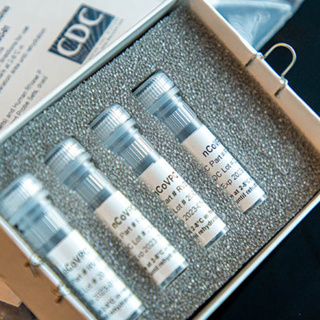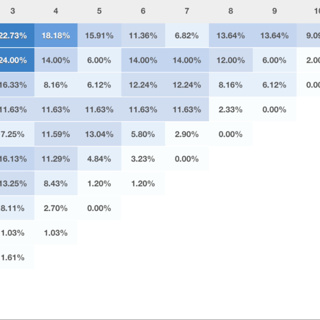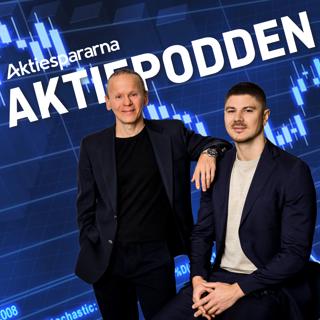
How a16z's Crypto Startup School Went Remote
On February 21, Andreessen Horowitz kicked off its very first Crypto Startup School, with 45 students from around the U.S. and three countries gathering to learn how to build crypto projects. But just two weeks into the seven-week course, community spread of the novel coronavirus meant the school had to go remote — not just for the health and safety of everyone involved, but for others too, given the recommendations around social distancing and the importance of “flattening the curve”.Marketing partner Kim Milosevich and Jesse Walden, former founder of Mediachain who’s helping lead our Crypto Startup School, chat with a16z crypto editor Zoran Basich — in this hallway-style episode of the a16z Podcast — about virtual learning and collaboration in a new, uncharted world.
14 Mars 202013min

When Fintech Meets Social
The last financial crisis prompted many consumers to reassess their banking expectations—none more so than millennials and Gen-Z-ers. While revealing one's financial information was once considered taboo, now consumers are more apt than ever to openly discuss money and debt on online platforms. It's a trend that's evident on both ends of the spectrum, whether that’s people divulging their crushing levels of debt on Twitter and Instagram (#debtfreejourney), bragging about their credit scores, or bemoaning their latest stock trades. And the repercussions extend far beyond social media. In this conversation with fintech general partner Anish Acharya (a former product manager at Credit Karma), consumer tech partner D'Arcy Coolican (a social+ fintech founder himself), and host Lauren Murrow, we discuss why the "holy grail" of social plus fintech is both so challenging and, potentially, so rewarding. We cover which products and companies are taking advantage of it (some in rather novel ways), how it's being driven by various subcultures online, and why this shift is happening now.
12 Mars 202023min

Innovation Through Software Development and IT
One of the recurring themes we talk about a lot on the a16z Podcast is how software changes organizations, and vice versa... More broadly: it’s really about how companies of all kinds innovate with the org structures and tools that they have. But we've come a long way from the question of "does IT matter" to answering the question of what org structures, processes, architectures, and roles DO matter when it comes to companies -- of all sizes -- innovating through software and more. So in this episode (a re-run of a popular episode from a couple years ago), two of the authors of the book Accelerate: The Science of Lean Software and DevOps, by Nicole Forsgren, Jez Humble, and Jean Kim join Sonal Chokshi to share best practices and large-scale findings about high performing companies (including those who may not even think they’re tech companies). Nicole was co-founder and CEO of Dora, which was acquired by Google in December 2018; she will soon be joining GitHub as VP of Research & Strategy. Jez was CTO at DORA; is currently in Developer Relations at Google Cloud; and is the co-author of the books The DevOps Handbook, Lean Enterprise, and Continuous Delivery.
6 Mars 202045min

The Open Source CIO
In 2014, in "Why There Will Never Be Another Red Hat," Peter Levine argued that Red Hat’s open source business model of commercializing support and services was highly difficult to replicate. Instead, he predicted the future of open source companies would be open source-as-a-service. And today SaaS has emerged as the dominant business model.In this podcast, recorded as a hallway-style conversation as part of the a16z Innovation Summit last year, Peter chats with Red Hat CIO, Mike Kelly, about what it means to be an open source CIO today – and how even Red Hat is evolving in the open SaaS era. They cover everything from why open hybrid has become the dominant enterprise architecture to how CIOs should think about adopting new technologies to what it takes for an M&A to be successful, beyond the spreadsheets.
28 Feb 202020min

Novel Coronavirus Updates: How Healthcare System, Tests Work; More
This episode covers the following -- since our previous deep-dive on the novel coronavirus outbreak -- including:practical implications for the U.S. healthcare system given how it works today, and where we might go in the future — with a16z general partner Julie Yoo, given our vantage point in tech; andhow the rt-PCR test works — with a16z bio partner Judy Savitskaya;…in conversation with Sonal Chokshi.Sources for updates at top:CDC's latest briefing February 26, 2020, transcriptWHO situation report #27 February 25, 2020 [we covered #6 and #25 on previous episodes]Sources for last week's episode:latest numbers: cases in the U.S. (CDC, as of February 17, 2020); global cases (WHO situation report #25, February 14, 2020); spike in diagnosing cases as reported in China (SCMP, Scott Gottlieb)situation & policy statements/reports: CDC summary (as of February 14, 2020); “Annual report on global preparedness for health emergencies”, WHO (Global Preparedness Monitoring Board, 2019)on definitions (of pandemics, endemics), other terms, and various naming conventions: “Understanding pandemics: What they mean, what they don’t mean, and what comes next with the coronavirus”, Helen Branswell, StatNews (February 12, 2020); on disease occurrence and levels (CDC); “misinfodemic“; best practices on naming new human infectious diseases (WHO); qPCR (Keith Robison)image: CDC test kit for COVID-19/ Wikimedia Commons
27 Feb 202021min

Metrics and Mindsets for Retention & Engagement
It's "Marketplaces Week" for us at a16z, thanks to our consumer team releasing a new index of the next industry-defining marketplaces, the Marketplace 100. But what happens as such marketplaces and other platforms evolve over time, as do their users? This episode is a rerun of a popular conversation from a couple years ago -- featuring general partners Andrew Chen and Jeff Jordan (in conversation with Sonal Chokshi) -- on what comes after user acquisition: retention. It's all about engagement. So what are the key metrics? And if different kinds of users join a platform over time -- what does that mean for engagement, and where do cohort analyses come in?
20 Feb 202033min

Tough Love, Global Diplomacy, and Lessons on Leadership
Susan shares how she learned to leverage the characteristics of her personality early in her career as assistant secretary of state [2:05]One of the important conversations Susan had with a mentor that changed the trajectory of her career [4:50]Her parent’s commitment to education, their personal backgrounds, and the legacies they created [8:10]The result of instilling self-belief into children and mastering “psychological jiu jitsu” [10:22]What the early lessons of family diplomacy taught her [14:00]The importance of strategic compartmentalization [16:48]How to approach crisis during high stakes situations [18:29]How to practice compassionate leadership while maintaining effectiveness [20:10]Hacking the concept of “work-life balance” [21:10]The required characteristics of powerful leaders [28:14]The hard things about leadership and the idea of being liked [31:20]The “middle finger story”/the time Susan stood up for herself in an important meeting [33:23]Susan talks about China’s intelligence collection in the US [39:45]A call for unity between the private, public, and academic sectors [42:54]
14 Feb 202050min

Building the First CAR T Company
with @OzAzamTmunity1, @JorgeCondeBio, and @omnivorousreadCAR T therapy, the groundbreaking new medicines that uses engineered T-cells to attack cancer, has been so effective in childhood leukemias that we believe it may actually be a potential cure. But this isn't just one new medicine, it's an entirely new therapeutic tool—and a total paradigm shift from most traditional medicines we've seen before.Tmunity CEO Usman "Oz" Azam was previously the head of Cell and Gene Therapies at Novartis, in many ways the first CAR T company and the team brought us blood cancer CAR T-cell therapy Kymriah—the first cell-based gene therapy to be approved in the US. In this conversation, Azam discusses with a16z's general partner Jorge Conde and Hanne Tidnam what CAR T therapy really is and how it all works. The conversation begins with the “patient and cell journey” of this treatment and how this medicine is developed, manufactured, delivered to patients; why exactly it's so different traditional medicines; what it will take to make these new medicines work on more kinds of cancer, scale to more patients, and cost less; and finally, what company building lessons can be learned from building the first CAR T company of its kind from the ground up.This episode was recorded at the annual a16z Summit.
7 Feb 202028min





















